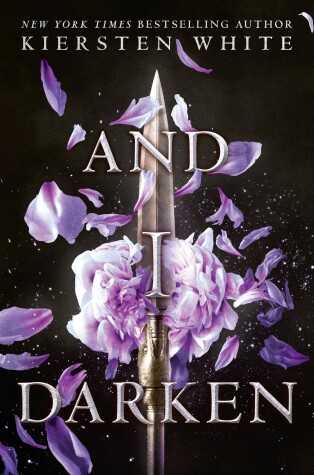Lada
This is the second piece of fiction with a young girl at the forefront of it, and I find it funny she had a similar struggle with her father as Kate did from This Savage Song by Victoria Schwab (which is another novel I incidentally mentioned in my last review). They both desired to please domineering and strong fathers who accepted them but never seemed grateful for their efforts.
"You do not get angry at the mud for clinging to your shoe. You wipe it off and never look at it again."
Even still, Lada learns early on of her father's cowardice and chooses for her goal to be a ruler her country deserves - which is ambitious for someone 12-13 at the time.
Lada was born into a desperation to appease her father and take her place as the rightful heir to her country. She saw her father - as children often do - as a strong leader. It wasn't until his lack of affection towards her led to she and Ragdu being sent away that she saw her father for who he was. But even still - with every trait the world had given her, and she had nurtured trying to be accepted by her father - Lada was impulsive and harsh. But her innocence and heart still won out in moments of intimacy, because she was still a child-to-young-woman who wanted that companionship in some form. Whether it was through someone like Bogdan, Mehmed or her own brother.
Brogdan
I liked that the beginning of this relationship had its closeness, but it started with a funny scene of them as kids pretending to be betrothed and signing it off with a comedic kiss and blood oath that nearly scarred their palms. It's nice to see that friendship > relationship develop out of a fondness for each other, and there's no overt and repulsive romanticism of these two kids being near each other.
Radu
Radu is the most precious bean, which means he's doomed.
"Radu nodded, snuggling into her shoulder. 'Will you protect me?'
'Until the day I kill you.'"
Ragdu didn't eventually grow up more masculine or become a tough man the way his family had tried to pressure him into becoming; in everything Ragdu did he was still the young boy who would cry at the moment of discomfort and longed for closeness. And even when someone like Lada did him wrong, his tenderness always won out in the end. He went with his gut always, and he didn't let the world misshape him into their image.
Notables
White has a fairly unique writing style from that of other authors in this sphere. Some of my favorite lines feel like they're pulled more from the minds of poets or lyricists. I think Melody put it best that it's less flowery and more direct and blunt, but it still clings to you.
"[…] the first time he had every truly looked at her, and the memory of that was both a pleasure and an agony she had been nurturing ever since."
I appreciated the theme of privilege in this. Brogdan was even met with an easier time than the prince's daughter:
"People already respected him more than they did his mother the nurse. It made Lada's jaw ache, the ease with which life greeted Brogdan."
Not only is it obviously historically accurate, but it was so interesting to see someone as young as Lada have to confront that issue and realize that her goals and accolades would be constantly met with obstacles the men around her wouldn't have to experience.
This was certainly an interesting journey, and it took place during a time period that you don't see a lot of historical fiction talk about. I appreciated the bend of Lada being Vlad the Impaler, and I loved the handling of religion. We got to see all sides of it. The time of the Crusades framed Christianity as a weapon. So in that regard, that is the way Lada and her father saw it. Then there was Radu who did study Christianity, because that was what was expected of him, but upon entering the Ottoman Empire found faith in Islam. At no point was there an underlying message of Islam is peace and Christianity is death, however. The balance between Lada's skepticism, Radu's studious faith, and the characters before them in Wallachia who focused on Christianity were all allowed to believe how they believed and be their own examples of those schools of thought.
Anyway, this was a fun read. I hope others get the chance to enjoy it as well.
